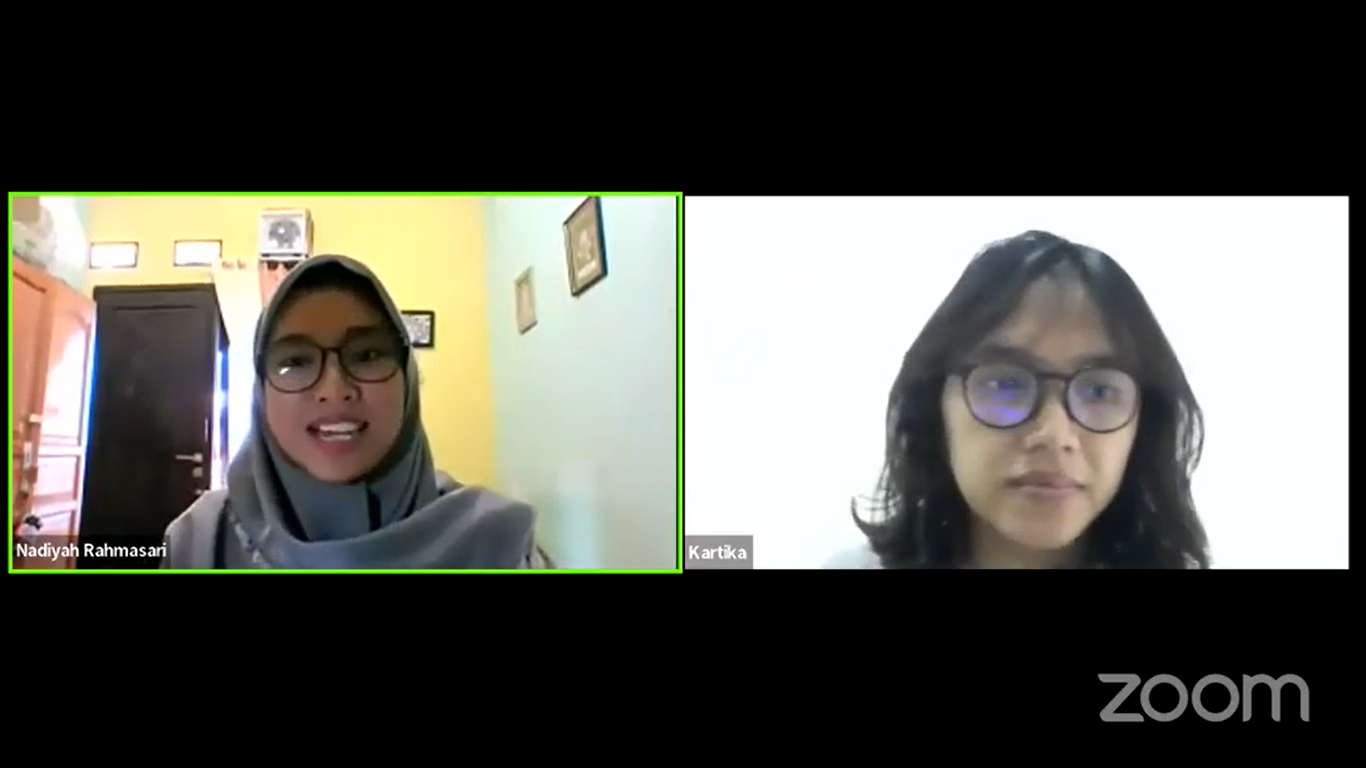UNAIR NEWS – We are often faced with environmental problems in the form of a large amount of garbage being thrown carelessly. According to the UN (United Nations) data related to waste in Indonesia from 2017-2025, the increase in waste reaches around 1% every year. In 2020, Indonesia produced 67.8 million tons of waste. Of the 67.8 million waste, 56% was disposed of in landfill sites, 37% was not managed, and only 7% was managed. A lot of this unmanaged waste could be seen being dumped into rivers, burned, and thrown into the sea or even on the side of the road.
The problem was described by Kartika Karosekali, S.T., M. Sc. from PT. Systemiq Lestari Indonesia as a speaker in the guest lecture entitled “Best Practices of the STOP Muncar Program’s Waste Management System” held by the PSDKU UNAIR Banyuwangi Public Health Undergraduate Program. The guest lecture was held online through Zoom Meeting and live streaming on the YouTube account of UNAIR Banyuwangi Public Health Study Program on Friday, November 26, 2021.
The first STOP Muncar program was motivated by the large amount of marine debris originating from the mainland, 50% of which could come from economic activities. With the increase of the current economic activities, plastic waste can definitely increase both on the mainland and in the sea. However, in 2017, the Indonesian government committed to reducing plastic waste in the sea by 70% by 2025.
“With this commitment, PT. Systemiq Lestari Indonesia supports the Government of Indonesia by holding STOP programs, one of which is held in Muncar District, Banyuwangi. Muncar District Banyuwangi has become a model in Banyuwangi Regency for the program,” said Kartika Karosekali, S.T., M. Sc.
Ideally, the best waste management model is a sustainably integrated waste management system. A sustainably integrated waste management model should cover all technical (infrastructure) and governance aspects to function properly in the long term. Therefore, the STOP program involves points of view from technical aspects, the government, and the community themselves for optimal results.
“Regarding the STOP Muncar program, we are focusing on managing waste in a circular manner with zero leakage. This program aims to reduce plastic leakage into the oceans, increase the rate of plastic recycling, and increase benefits related to health, fisheries, tourism, and job creation. The name of the program itself comes from the abbreviation of Stop Ocean Plastic. In other words, we want to stop the rate of marine debris,” explained Kartika.
Currently, the STOP program is applied in three cities in Indonesia, including Muncar Banyuwangi, Jembrana Bali, and Pasuruan. Based on Kartika’s explanation regarding the data from the Muncar socio-economic study, 43% of people still threw garbage into rivers or into the sea, 21% burned garbage, 12% threw it on the ground, 11% buried waste, 11% took it to the local dump, and only 1% used formal garbage collection and disposal services. On this basis, the STOP program chose Muncar District as the target.
The waste journey in the STOP program consists of three parts. First, garbage is taken from house to house and put at a local dump. Second, the collected waste is processed at the 3R (reduce, reuse, recycle) local dump. Organic waste is processed into compost and BSF (Black Soldier Fly) for animal feed, while inorganic waste is sorted and packaged for sale to the recycling processing industry. Third, in the handling section, residual waste that cannot be processed or recycled is disposed of in the landfill sites.
Hopefully, this system will improve the waste management system in Indonesia and overcome waste problems both in Indonesia and in the world. With these activities, Indonesia can realize one of the 12th Sustainable Development Goals (SDGs) targets by substantially reducing waste production through prevention, reduction, recycling, and reuse.
“This system will minimize waste, and no more waste will leak into the environment. Thus, the program’s goals are achieved,” she said.
Author: Tyas Ratna Manggali
Editor: Nuri Hermawan





